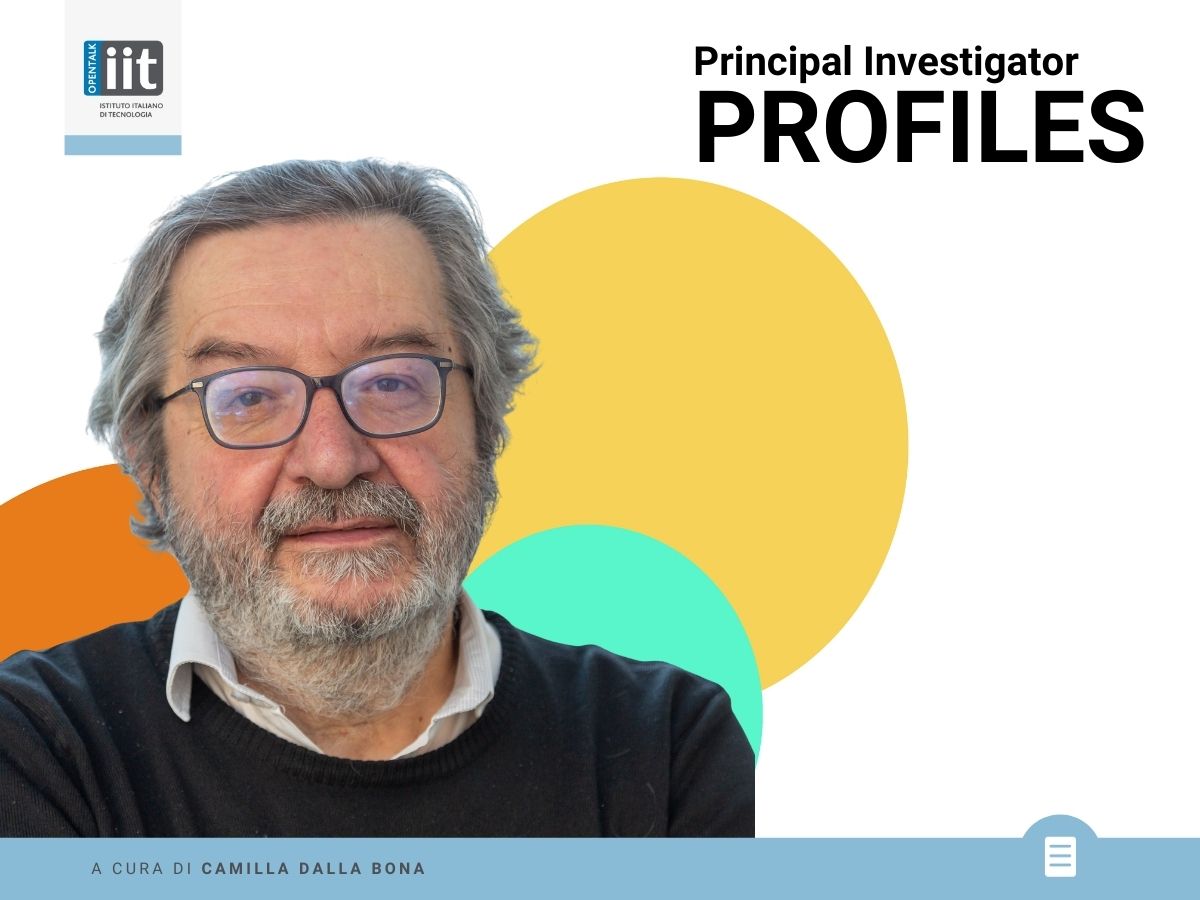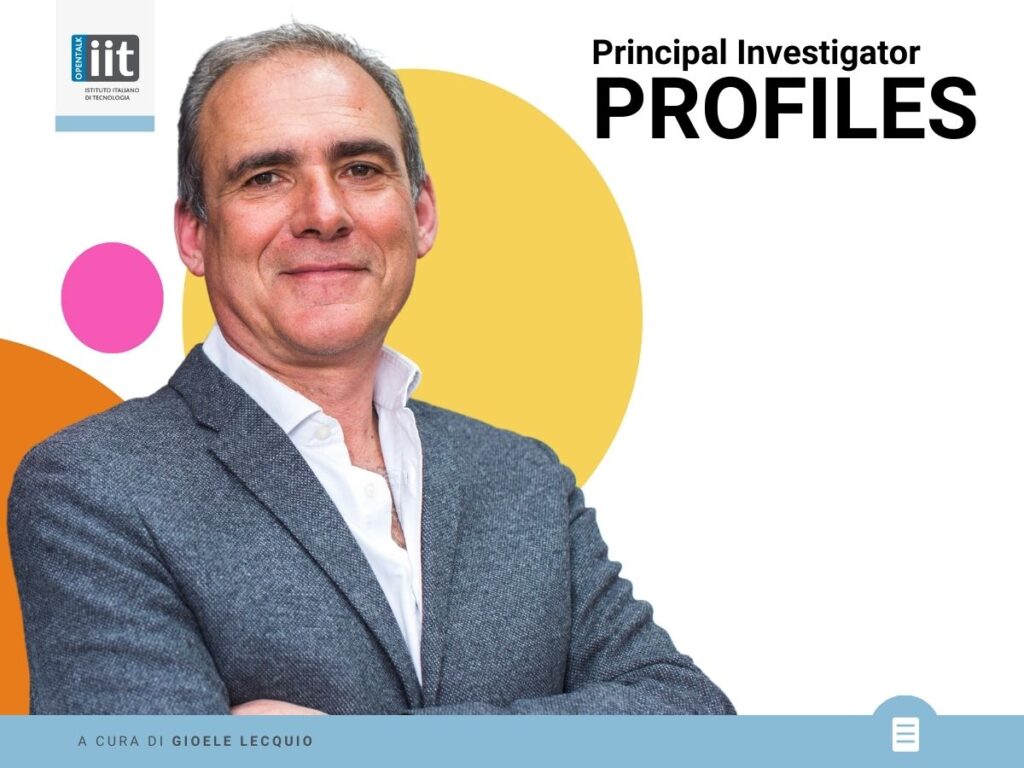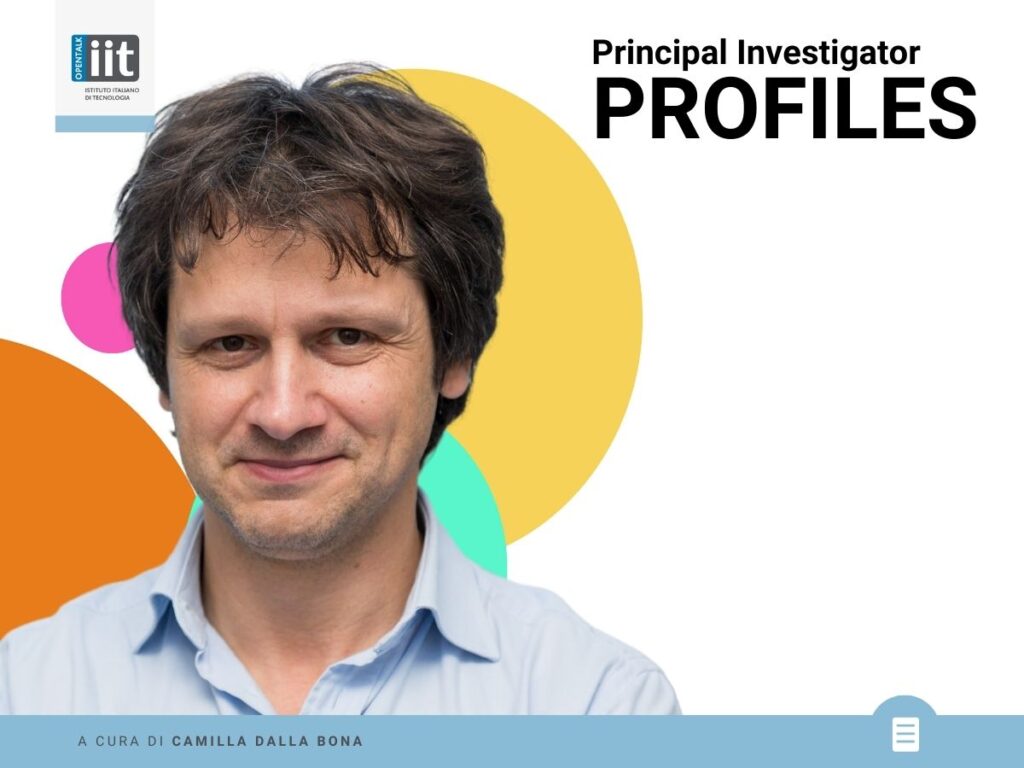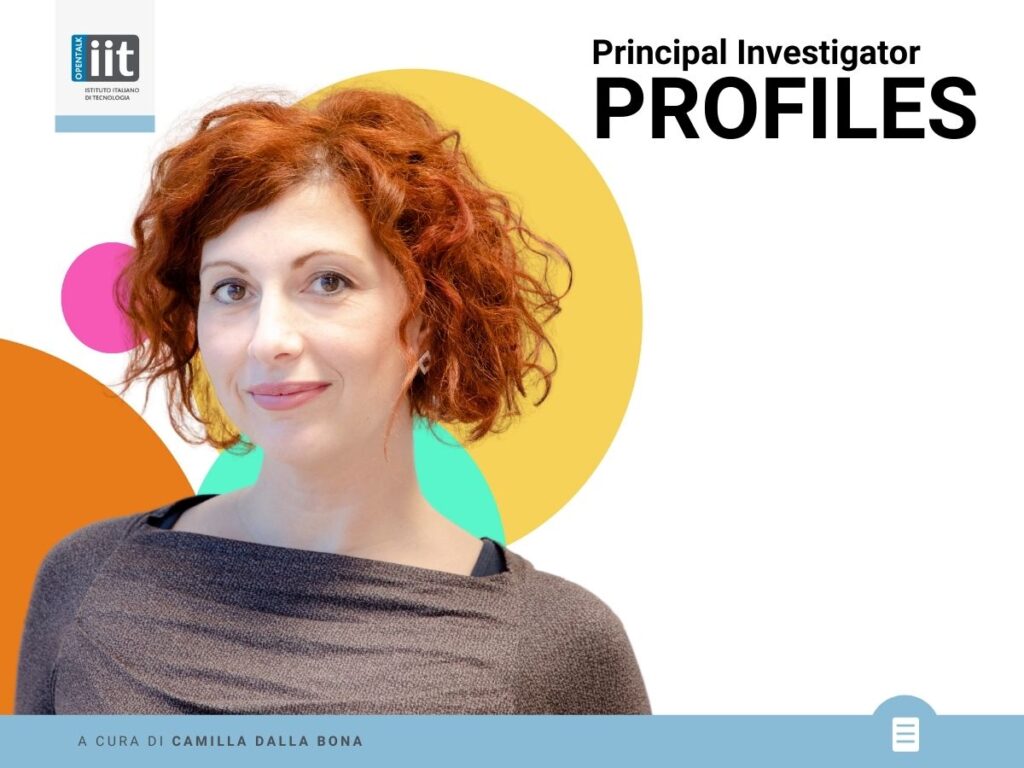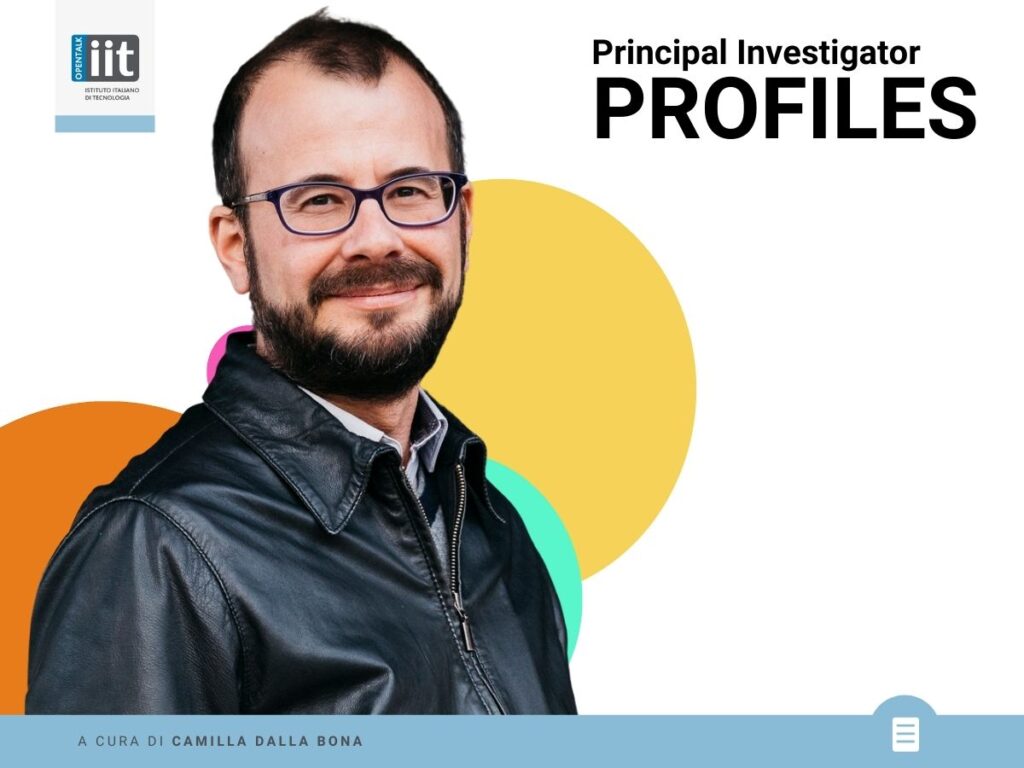Interview with Angelo Reggiani, coordinator of the IIT research line “D3 Validation“
Name: Angelo
Surname: Reggiani
Place of Birth: Turin
Position: Senior Researcher, PI D3 Validation
What does your research team do? We deal with the validation of biological targets with a focus on the central nervous system, with a view to collaborating with other teams working on molecules. By biological targets, I mean the key elements in the development of a certain disease, which will be the target of future drugs in order to achieve maximum therapeutic efficacy.
What about your recently published Covid paper? In that case, the biological target was a portion of ACE2 (an enzyme involved in blood pressure control), i.e. the protein domain that functions as the binding site for the viral spike protein. In the study, we developed an aptamer, a biological molecule composed of DNA, and worked not so much to block ACE2 but to mask only the portion of ACE2 involved in the action of the virus.
When you were younger, was this the job you had in mind? Yes, absolutely. As a kid, I wanted to find new medicines to cure people so I opted for pharmaceutical chemistry after high school.
That time you would have wanted to drop everything and do something else: There have been many, of course. Generally speaking, research is hard. The number of failures is much higher than the number of successes we experience in our careers. Furthermore, for people like me doing research in the pharmaceutical field, you have to bear in mind that you may only see the results of your work after 10 years, so any real rewards, if they come, come after a very long time and this can be discouraging. When I worked in a company, we developed a very powerful molecule to control neuropathic pain and it looked like it was a success. There was a lot of interest, investment and things seemed to be going well. However, when we got to the industrial synthesis of that molecule, we discovered that traces of a carcinogenic substance were being created as a completely unpredictable by-product. So all our work and my childhood hopes of being useful collapsed. In short, you need a lot of passion to do our work.
“Publish or perish”. How does the pressure to publish influence your days and your professional choices? I come from a 30-year experience in a pharmaceutical company where publication is not as important as finding potential drugs. Moving from this environment to the world of basic research has completely changed my opinion on papers and their importance. Having said that, my life experience continues, fortunately, to influence my choices and reasoning so I am not among those researchers who live to publish.
When did you realise you were going in the right direction? There was no real epiphany, but I realised that things were going well when my responsibilities were increased. For me, this meant having the tools and opportunities to put my ideas into practice, which is the most important thing, and then luckily we saw the results.
What is your next goal? As mentioned earlier, I recently published a paper with Paolo Ciana, University of Milan, and Vincenzo Lionetti, Sant’Anna School of Advanced Studies, in the journal Pharmacological Research. This study proposes a revolutionary therapeutic model to interrupt the progressive advance of infection. In fact, instead of trying to eliminate the virus, our concern was masking the gateway to the target cells. In this way, our approach should remain effective even in the presence of any Sars-CoV-2 variant (the mutations occur on the virus and not on ACE2). The next goal is to see if there are any pharmaceutical companies or investors interested in funding the continuation of this research or even licensing our patent to develop it themselves, perhaps with our consultancy.
What is the toughest aspect of your job? Finding out after a long time whether the idea we have worked on and believed in has achieved concrete and useful results. You might say that we make a bet that is validated by the theory we already know and the studies that have already been published, but the path to the final result is never linear.
Senior researchers necessarily have to deal with many bureaucratic aspects. Apparently, this aspect does not fit well with the research activity. How is that for you?These are tasks that are certainly out of line with the real heart of my work but, equally, they are necessary and I’m used to it by now. What’s more, we might consider evaluation of team members as a ‘bureaucratic task’ but I consider that a task that requires great care and regard for the people who work alongside you to make your ideas happen. Research is a team sport without a doubt and you’ve got to support your team.
Who should invest more in research compared to what is done today? I personally would prefer to focus on how funds should be invested in research, rather than who should invest. Investments are not always wise and this makes them a wasted gesture.
Do people talk about science outside the labs and the academic world? There is a lot of talk about it now. I’ve even had a chat about science while waiting at the bank. There is no doubt that the current global health situation has shone a spotlight on research, bringing it to the attention of many people who had never thought about it before. For better or for worse.
Who gave you the most important advice during your journey? I have to say that I have learned important lessons for my work from a number of people, just as I like to think that a great many students and PhD students have learned from me. I recognise that the role of leader bears a great deal of responsibility for the education of young people and not only with regard to the outcome of experiments.
What would you say to the younger you finishing his PhD? I would advise him to go abroad, as I did in fact. I was one of very few to leave when I won the scholarship to go to the Medical Center of Houston (USA) and I am convinced that that decision had a positive impact on my work as a researcher. Going abroad, even more so in my time when it was harder to keep in touch with home, forces you to meet new people and new ways of working. Experiences like this enrich you culturally as well as in terms of flexibility and adaptability. Now that there are more opportunities, I would recommend aiming for a specific research centre or specific laboratory abroad, where there is a chance to grow.
You can improve one aspect of research in general. Which one would you choose? In Italy, the allocation of funds.

